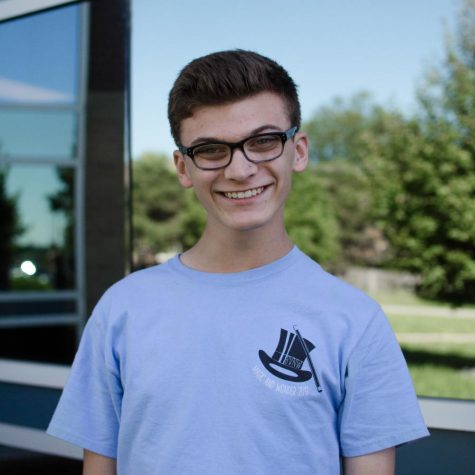The journey to imperfection
February 27, 2018
If I saved a million people, I would tell myself I should have saved a million more. No matter what I do, it never feels like it is enough. I am a perfectionist who sets expectations that are impossible to reach. If I am not perfect, I feel like a failure. I always feel like a failure because nothing is perfect.
One day, I reached my breaking point. After practicing the same music over and over again for seven months, it was finally my time to audition for the Kansas All-State Honor Band. I went into the audition room, and as soon as I played the first note, I squeaked. The squeak was the peak of my audition, and the rest just came tumbling downhill. Seven agonizing months I spent practicing, and now this one terrible five minute audition determined my ranking among Kansas’ finest musicians. When I walked out of the audition room, I expected myself to crumble into hysterics, but oddly enough, I felt proud of myself instead.
While I was not proud of the audition itself, I thought back to my sophomore year, and I realized how far I had come, not only as a musician, but as a person. This five minute audition proved nothing of my worth, value or talent. For too long, I allowed the idea of perfection to consume my life, and I am tired of living a life where I always feel like a failure. From now on, I am making it my mission in life to learn how to feel good about myself.
To begin my mission, I decided to learn why I am unable to accept being imperfect.
Licensed clinical psychologist Melanie Davis believes cognitive dissonance is a major component as to why humans struggle to accept imperfections. Cognitive dissonance refers to the mental discomfort of having conflicting thoughts, attitudes or beliefs.
“[These] people have a really hard time feeling good about themselves when they make mistakes, because they don’t know how to handle those conflicting opinions and experiences,” Davis said.
If I had fewer goals, I would be more confident, but, ironically, part of being a perfectionist is that I am always setting high goals for myself. Even though not reaching the goals I set causes discomfort, goals are still important because without them, I would have nothing to work for. After all, like my All-State audition proved, failure is a necessary component to personal growth.
“One of the most important things is we have to normalize failure,” Davis said. “Failure is just a normal part of life.”
In order to start feeling good about myself, I realized I do not have to change who I am, I simply have to develop a new perspective on life. I have to start with how I think about everything in life, with the ‘fake it until you make it’ mentality.
Like Davis said, “You tell yourself, ‘It’s okay that I made this mistake. I am learning from this now. I know how to try this task again.’ That will then impact your mood, and really color your perception of who you are as a person and how the world is.”
As I pursue music education in college, I will always look back to my All-State audition to remind myself that one failure or audition does not determine my worth, value or talent. I hope to use my knowledge and experiences to teach myself how to seek growth rather than perfection. After all, it is not the destination that matters, it is the journey.






